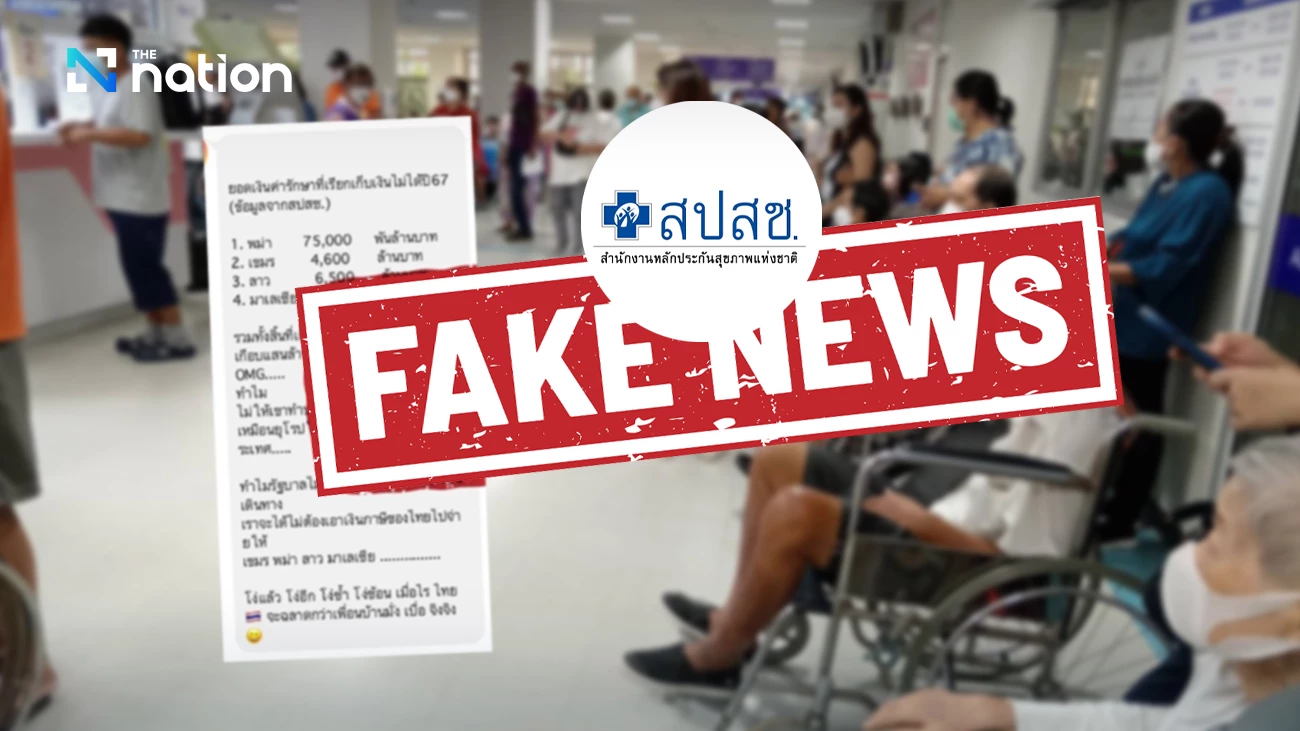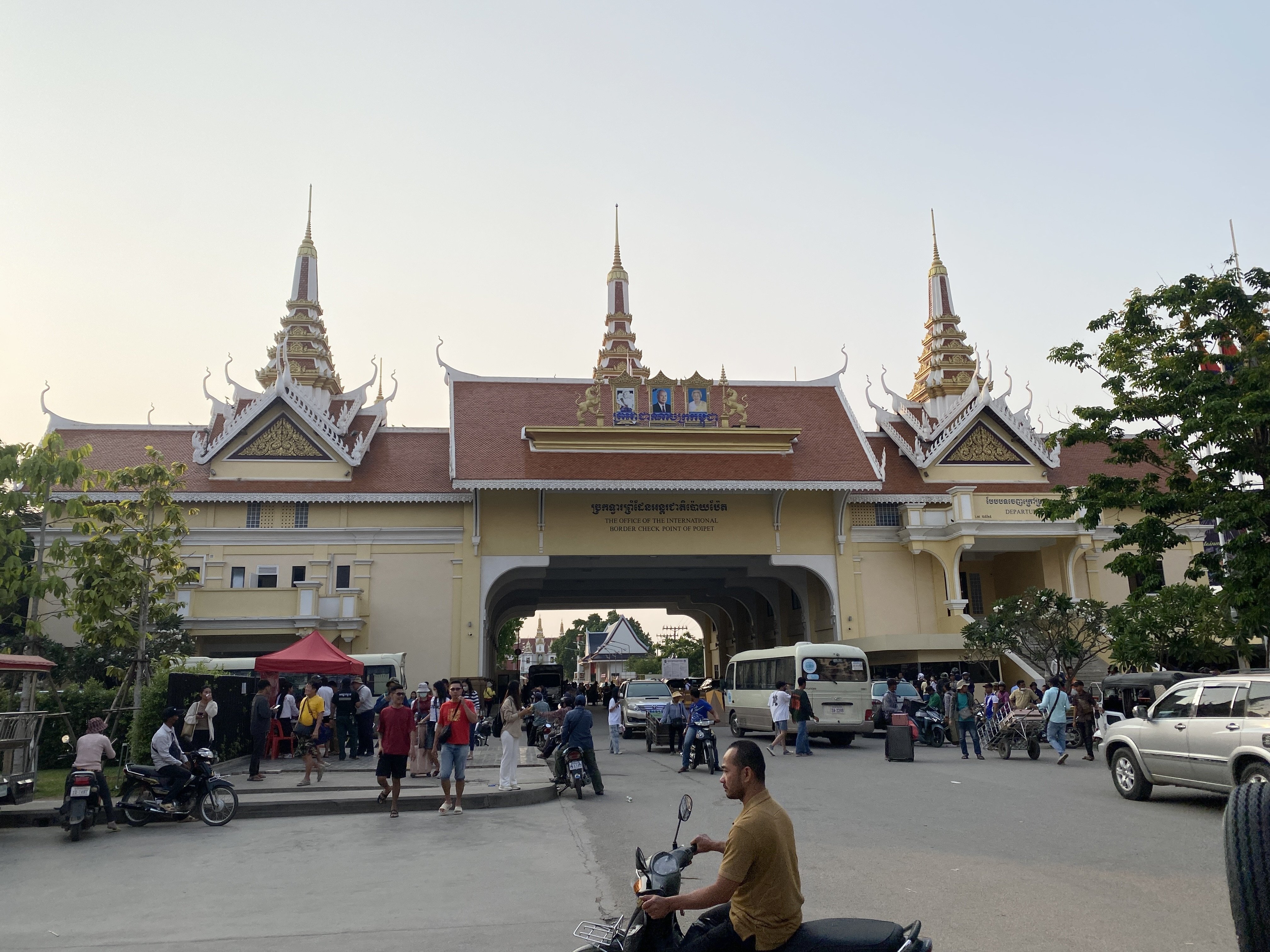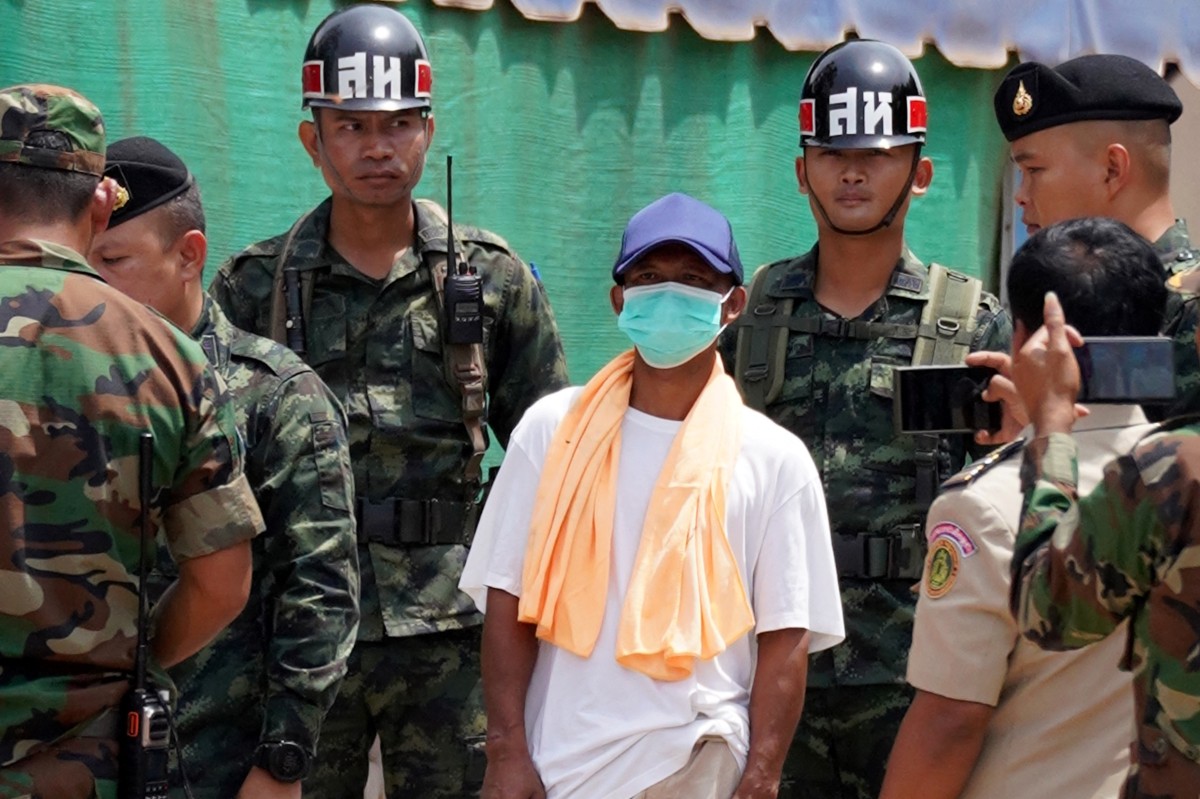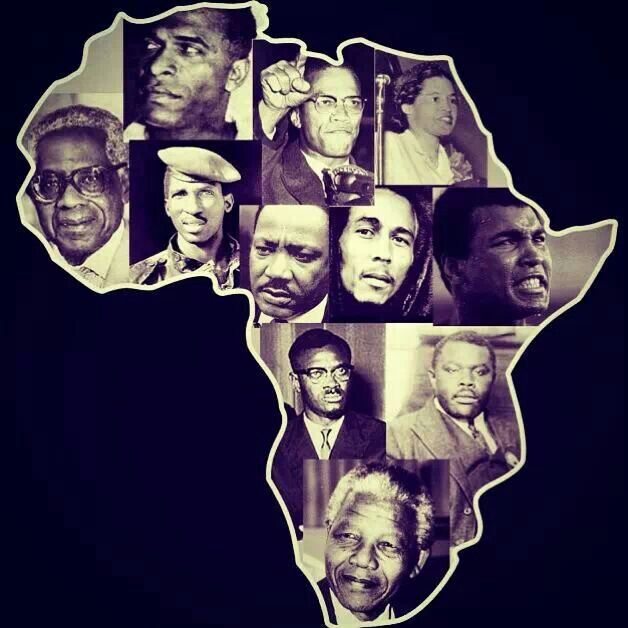Tensions Ignite: Thai-Cambodian Border Crisis Escalates Amidst Fake News Onslaught

The recent period has seen a significant escalation in tensions and a proliferation of disinformation surrounding the relationship between Thailand and Cambodia, particularly concerning their shared border. Several claims, both political and financial, have circulated widely, prompting official refutations and intensive diplomatic activities to address the complex situation.
One notable instance of disinformation involved claims on social media that Thailand’s National Health Security Office (NHSO) had spent nearly 100 billion baht last year on medical care for citizens of neighboring countries, including Myanmar, Cambodia, Laos, and Malaysia, without reimbursement. The NHSO firmly denied these allegations, which detailed specific amounts such as 75 billion baht for Myanmar nationals, 4.6 billion baht for Cambodians, 6.5 billion baht for Laotians, and 6.2 billion baht for Malaysians. The office clarified that these figures were false and misleading.

Photo Credit: Cambodianess
Further demonstrating the climate of misinformation, Thailand’s Ministry of Foreign Affairs (MFA) vehemently rejected accusations from Cambodia’s Minister of Information, who cited foreign intelligence sources alleging a Thai plot to assassinate Cambodian leaders Hun Sen and Hun Manet. Nikorndej Balankura, Director-General of the Department of Information and Spokesperson for the MFA, denounced these claims as entirely unfounded and explicitly intended to defame Thailand. He emphasized that spreading such false news during ongoing General Border Committee (GBC)discussions was counterproductive and undermined efforts toward peaceful resolution. The Ministry condemned these acts as harmful attempts to derail diplomatic progress.
The physical border itself has been a focal point of contention, with allegations of ceasefire violations and the deployment of landmines by Cambodian troops. To address these serious concerns, the Royal Thai Army (RTA) led an ASEAN Interim Observation Team (IOT) to the Thai-Cambodian border. This mission aimed to monitor alleged breaches of international law and ceasefire conditions, following previous visits by ASEAN envoys and representatives from countries that ratified the Ottawa Convention—which bans the use, stockpiling, production, and transfer of anti-personnel mines.
During their visit to Si Sa Ket province, envoys witnessed evidence of anti-personnel mines allegedly laid by Cambodian troops and engaged directly with affected residents, confirming the humanitarian impact. Separately, representatives from the International Committee of the Red Cross (ICRC), facilitated by the RTA, Foreign Ministry, and Interior Ministry, assessed the humanitarian situation in Surin, Si Sa Ket, and Ubon Ratchathani provinces. The ICRC gathered facts, interviewed local residents, and committed to compiling a confidential report on the humanitarian impact for submission directly to both Thailand and Cambodia, affirming Thailand's commitment to humanitarian protection.
A long-standing issue highlighted by government spokesman Jirayu Houngsub concerned the Ban Nong Chan village in Sa Kaeo, where Cambodians had established a community on what Thailand asserts is its sovereign soil. Jirayu claimed that Ban Nong Chan, initially a temporary shelter for Cambodian refugees fleeing civil war in 1977, was exploited by Cambodia to encroach on Thai territory. He stated that the refugees refused to return home, instead expanding their community, effectively using citizens as a human wall to provoke border tensions and territorial claims.
In response to these perceived encroachments and alleged landmine laying by Cambodian troops, Thailand erected razor wire within its own boundaries to protect its territory. Jirayu insisted this action did not violate the August 7 General Border Committee meeting resolution, which stipulated that neither side would construct structures outside their territories. Thailand has also indicated its intention to send video and photo evidence of Cambodian landmine laying activities to Geneva.
The gravity of the situation prompted Acting Prime Minister Phumtham Wechayachai to mention that academics might submit a proposal to the government to consider suing Cambodian Prime Minister Hun Manet and his father, Hun Sen, in the International Criminal Court (ICC) as war criminals. This consideration follows a resolution by the National Security Council (NSC) to file both criminal and civil lawsuits against them in Thai courts for causing deaths and injuries to Thais, as well as damaging assets, through orders to fire at Thai civilians.

Photo Credit: Khmer Times
International attention is also drawn to the conflict, with Phumtham meeting four US lawmakers to discuss regional developments, security, economic issues, and investment. The US delegation was scheduled to observe the Thai-Cambodian border conflict zone in Ubon Ratchathani, a visit Phumtham described as positive, noting the role of US and Chinese observers, along with ASEAN military attachés. He stressed the importance of truth over propaganda and confirmed raising the issue of Cambodian mine-laying activities with the US delegation, prioritizing this over discussions concerning Memoranda of Understanding 43 and 44. Further talks between the two nations are scheduled for September 10.
The Ministry of Digital Economy and Society (DES) also reported the significant impact of disinformation, revealing that eight out of the top ten fake news items circulating last week were false reports related to the Thai-Cambodian border conflict, with the top three directly concerning the border situation. Amidst these geopolitical tensions, there are also economic activities like Carabao continuing to build stock in the market, with its Cambodian energy drink plant now scheduled to open in December 2025, a testament to ongoing cross-border commercial ties despite the prevailing political climate.
Recommended Articles
Thai-Cambodian Border Crisis Escalates: Fake News, Land Disputes, and ICC Threats Ignite Diplomatic Firestorm

Ongoing tensions at the Thai-Cambodian border persist despite a recent ceasefire, fueled by serious allegations, humanit...
Border Inferno: Thai-Cambodian Crisis Escalates with Legal Threats & US Intervention

Escalating tensions define the Thai-Cambodian border conflict, marked by Thailand's rejection of assassination claims ag...
Southeast Asian Tensions Soar: Thailand & Cambodia Clash Over Borders, Legal Threats, and Fake News

The Thai-Cambodian border conflict is escalating with a surge in disinformation and mutual accusations, including claims...
Border Fury Erupts: Thailand and Cambodia Face Off Over Land, Leaders, and Lies

Thailand vehemently refutes Cambodian allegations of assassination plots against its leaders, labeling them as unfounded...
Escalating Tensions: Thai Army Deploys Amid Cambodian Border Claims, POW Standoff

Thailand asserts its right to detain Cambodian prisoners of war under international law while addressing border disputes...
You may also like...
World’s Strongest Currencies Compared to the U.S. Dollar

The Dollar may be powerful, but it’s far from the strongest. See the top currencies in the world that outshine it, and w...
World’s Strongest Currencies Compared to the U.S. Dollar

The Dollar may be powerful, but it’s far from the strongest. See the top currencies in the world that outshine it, and w...
Why Do Africans Become More African After Leaving Africa?

Why do Africans abroad suddenly embrace their roots with pride? From Afrobeats in London to Yoruba weddings in New York,...
Boxing Icon's Son in Legal Turmoil: Julio Cesar Chavez Jr. Faces Cartel Allegations & Deportation Drama!

Mexican boxer Julio César Chávez Jr. has been deported from the U.S. to Mexico, where he was immediately jailed for alle...
Super Falcons Make History: Nigeria Crowned WAFCON Champions for 10th Time in Thrilling Win!
)
Nigeria's Super Falcons made history by clinching their 10th Women's Africa Cup of Nations title with a spectacular 3-2 ...
Paolo Sorrentino's 'La Grazia' Dazzles Venice, Earns Raves

Paolo Sorrentino's latest film, 'La Grazia,' captivated the Venice Film Festival, earning a four-minute standing ovation...
KPop Demon Hunters Ignites Oscar Buzz, Captivates Audiences

The animated film "KPop Demon Hunters" has emerged as a record-breaking global phenomenon, topping Netflix viewership ch...
Naira Marley Breaks Silence: Explosive Defense in Mohbad Case Rocks Nigeria!

Naira Marley has released a documentary sharing his side of the story regarding the tragic death of his former signee, M...